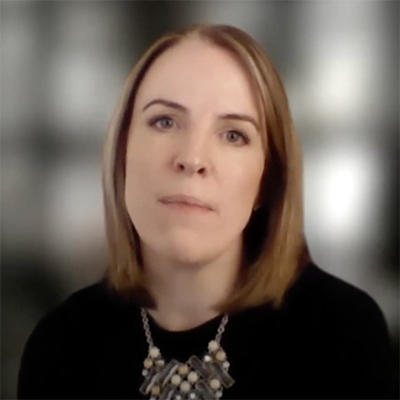
The Rocky Mountain chapter of the Energy Bar Association this month hosted a panel to discuss the intricacies of creating an organized market in the West.
 Erin Overturf, Western Resource Advocates | Energy Bar Association
Erin Overturf, Western Resource Advocates | Energy Bar AssociationEach panelist at the March 3 “Winter Energizer” gave a short presentation on their organization and its part in the energy transition. And each made it clear that an organized market would be crucial to reaching the region’s decarbonization targets.
“The aim of this conversation is to decarbonize … the power system as quickly as possible, as reliably and as cost effectively as we can,” Erin Overturf, director of clean energy programs for Western Resource Advocates, said. “We see regional markets as … a key tool to be able to achieve those aims.”
But the panelists acknowledged that the political diversity of the West means designing this market will not be a simple undertaking. Being flexible enough to accommodate states and their varied interests is key to creating a system that benefits states, utilities and ratepayers alike.
 Carrie Simpson, Xcel Energy Colorado | Energy Bar Association
Carrie Simpson, Xcel Energy Colorado | Energy Bar Association“Letting states speak for themselves about what it is that they need to be able to get out of a regional market in order for it to work, I think is absolutely critical,” Overturf said.
But designing a market that is mutually beneficial for all participants would only be the first step to widely decarbonizing the West. To curb greenhouse gas emissions more rapidly, interregional transmission will need to be constructed throughout the entire footprint. And as seen with MISO and SPP, an organized market does not inherently lead to the construction of interregional transmission, said Carrie Simpson, director of western markets for Xcel Energy Colorado.
“I don’t know that an RTO automatically just opens the door for transmission because I think it’s all about what the rules are and what the policies are and what the cost allocation rules are,” Simpson said.
 Rachel Bryant, PA Consulting | Energy Bar Association
Rachel Bryant, PA Consulting | Energy Bar AssociationThough membership in an RTO may improve a utility’s situational awareness and allow it to better assess what kind of interregional transmission projects may be most beneficial, it does not necessarily ease the process of constructing these projects.
The main drawback states and utilities face when considering an organized market is the fear of a lack of autonomy. Rachel Bryant, a principal consultant with PA Consulting, said states have seen how some markets in the East have been rigid and were designed without diverse state policies and adaptability in mind.
“Breaking through that sort of stigma that you’re going to lose all your rights and be forced to do things you don’t want to do — I think is a huge part,” she said. “I feel like markets almost need a marketing manager to make this seem appealing to the people who are most resistant.”


